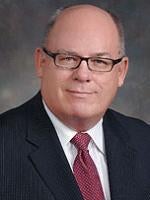There is a doctrine in Supreme Court case law called the Doctrine of Strict Necessity pursuant to which the Court will avoid deciding Constitutional questions in broader terms than necessary and will instead limit their decision to the specific facts presented by their cases.
Coming into Monday’s decision in Harris v. Quinn, unions were reportedly nervous that the Court might use Harris as a vehicle to overturn the Court’s 1977 decision in Abood v. Detroit Board of Education. Abood is a case critical to public sector labor unions in the U.S. because it holds that non-members of a public employee union who are in the bargaining unit can be compelled to pay what are called “fair share” dues, that is, the cost of collective bargaining, union organizing, contract administration, etc. Though unstated in Judge Alito’s decision, he effectively followed the Doctrine of Strict Necessity and limited his decision in Harris by concluding that Abood only applied only to “full-fledged public employees” not the “partial public employees” present in Harris.
Having avoided the necessity of overruling Abood, Justice Alito went on to rule that the First Amendment prohibited the State of Illinois from compelling these partial state employees from paying any union dues if they chose not be a member of the Union. In coming to that decision, Judge Alito cited to what he called a “bedrock principle” that, “except perhaps in the rarest of circumstances, no person in this country may be compelled to subsidize speech by a third party that he or she does not wish to support.”
That quote should send a shiver of concern through the labor community. In addition to that, however, Justice Alito also took several healthy whacks at Abood, saying it was subject to “questionable” analysis, “fundamentally misunderstood” prior cases, and “rest[ed] on an unsupported empirical assumption.” Though Justice Alito did not chop down the Abood tree on Monday, one wonders if that tree will survive another term of this Court if presented with a case in which the petitioners are “full-fledged public employees.”



 />i
/>i

